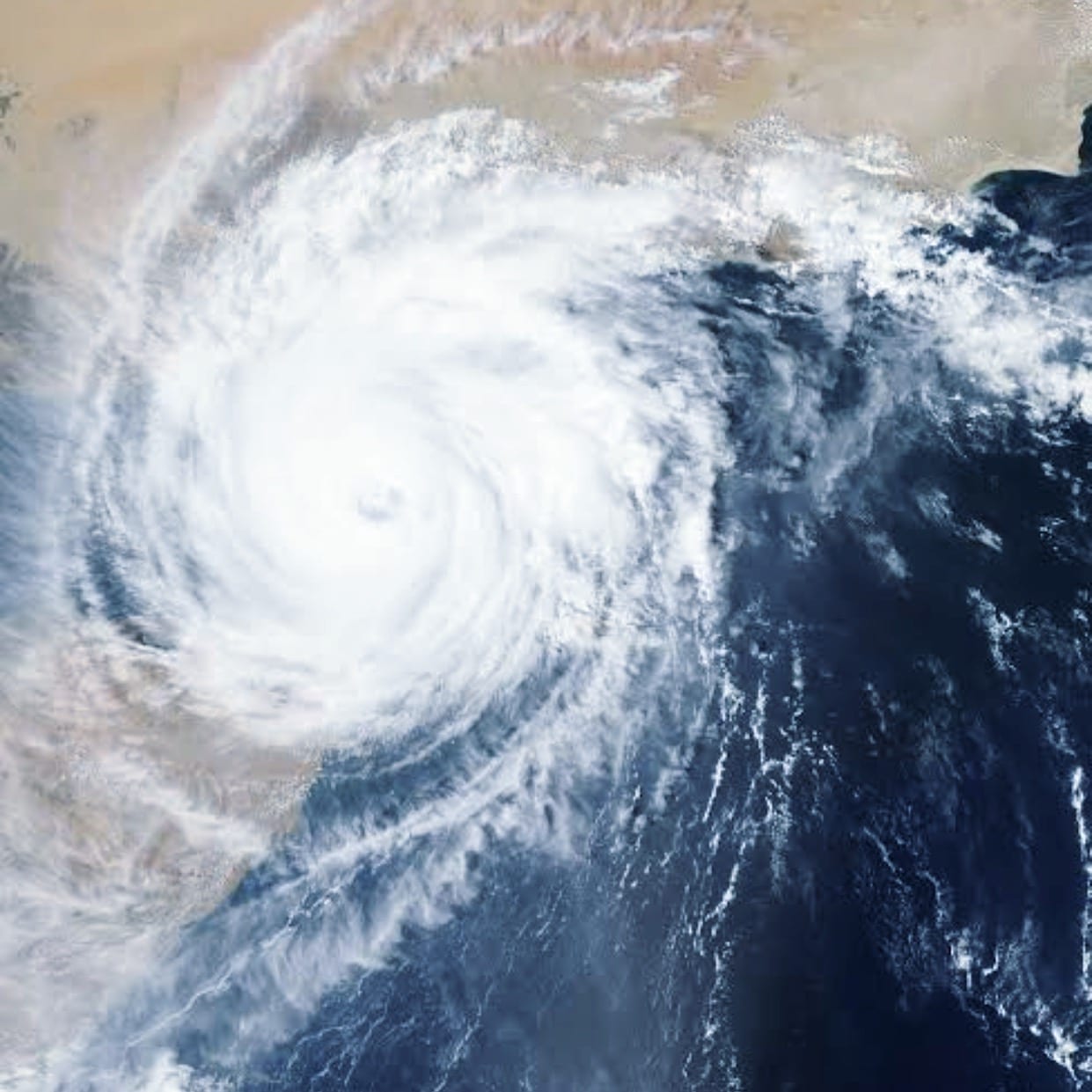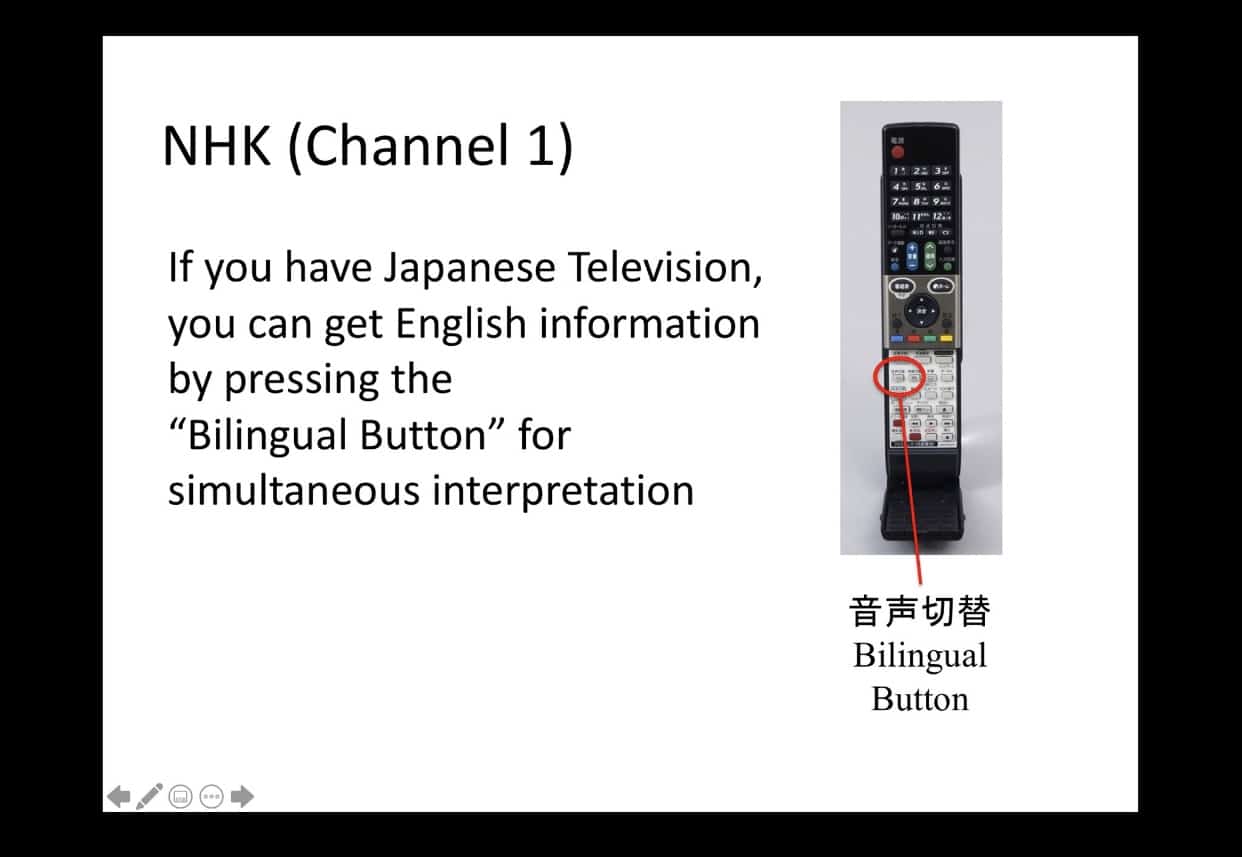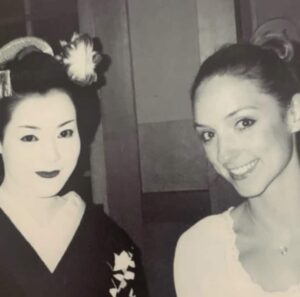
I’m getting a lot of typhoon-related questions so I thought I would be lazy and write down my tips once with as much detail as I can manage.
OKAY. I’M UPDATING THIS ARTICLE AS I’M SEEING LOTS OF JAPAN NEWBIES WHO ARE PSYCHING ONE ANOTHER OUT.
IF YOU STAY INDOORS AND HAVE FOOD AND WATER. YOU WILL BE SAFE. YOU WILL BE OK.
If you live in Japan and are feeling anxious, you can contact your local ward office as many have voluntary evacuation centres open. You need to bring your own food and drink.
If you are in a hotel, you can check in with the staff as regularly as you need ( spoiler: they will just tell you to stay indoors and to move your beds away from the window if you feel anxious.)
My first tip is to keep an eye on google. Typhoon courses change and the time of day the typhoon will also vary.
Also, here is the link to the Japan Meteorological Agency.
NHK has a QR code at the bottom corner of their screens leading up to a natural disaster that you can use for information in English.
In order to watch tv new information, in English, you can press this button on your remote control ( this image is courtesy of WaNavi Japan. )

If you don’t have access to a television, you can listen to NHK No.2 (693kHz) or Inter FM (89.7 mHz) on the radio.
Is it worth getting really anxious over a typhoon or a super typhoon?
Anxious, no.
Japan is not only prepared but also almost always flexible when it comes to cancellations and transport disruptions.
If you are prepared and follow the community guidelines and the procedures of your building/ accommodation, a typhoon will have little impact on your time in Japan.
It will most likely just be 24 hours where you will be slightly inconvenienced.
Travel Insurance – It’s a thing
Read the fine print on your travel insurance. THIS is what it is for. If you are stuck in Japan for extra days? You should be able to claim back insurance AND a daily allowance.
What should you do/ can you do to prepare?
Okay, this article is mostly for those who are holidaying ( or about to holiday) in Japan….
If you’ve been organized and used my Preparing for your trip to Japan blogpost to prebook restaurants, hotels, Disney tickets etc.. then you should contact them for their contingency plans incase of a typhoon happening while you’re supposed to be there or if it will stop you getting there the day of, before or the day afterwards.
Email is probably best if you hare asking a few days in advance. I would keep the English simple.
” I have a booking for xxxxx date. I am worried I won’t make it because of the typhoon on Saturday. If I can’t make it, what will happen to my booking?”
For Disney park updates, closer to the date, see here.
I think it is important to contact your hotel or airbnb, especially if it is located near the water.
Ask them for a link to their evacuation information.
Because of earthquakes in Japan it is very common place ( and also seen as clever, common sense) to ask these kinds of questions – you won’t look crazy, don’t worry.
It is also common sense to make sure you have charged your devices ahead of time, incase you lose power. ( It sounds frivolous to those that don’t have kids, but charge up old phones etc too. You’ll need some indoor “tv” options if you’re internet-less and stuck inside.
Make sure you have lots of water available too.
For train status information, here is the JR East website.
All Japanese airports are also brilliant at keeping their websites up to date for storms and earthquakes.
What is different about a super typhoon?
To be honest , more often than not, I always feel like a typhoon is more hype than it really needs to be – and sometimes I feel like news teams try and get footage of the worst part of storm. Also, when I went to high school in Japan I secretly loved a typhoon day as it meant I got to stay at home!
But for this upcoming super typhoon they are recommending staying indoors. They are even, at this point, going to postpone the rugby !
So…Why not try and at least make some fun of it? Here are some ideas.
I recommend getting lots of snacks and drinks beforehand.
Why not grab all of the wacky flavoured chips and chocolate ( and for the adults you can grab random alcoholic Chu-hais in cans) and do a little family taste test challenge?
You could also do a cup ramen challenge?
Buy all the cans of coffee and the grown ups can do a blind folded coffee tasting challenge and the kids act as the hosts?
Even better, the day before or the morning of, head to the basement of a large department store in Japan. They are like giant delis and you can pick up french bakery items, freshly cooked gyoza, salads, tempura, pizza, rice dishes.. everything. These are designed to be taken away and most items are designed to be eaten cold/bento style so I wouldn’t let it bother you if you don’t have access to a microwave.
These are beautiful, fresh local gourmet food options.
My favourite basement food halls in Tokyo are in Takashimaya in Shinjuku or Nihonbashi OR Tokyu in Shibuya ( under the Hachiko exit of the station) or Hikarie in Shibuya.
Then, at your accommodation, you can have your own little typhoon picnic!
Or you could download a few Japan related movies to watch incase you are without internet for a little bit.
Go to a drugstore and buy some beautiful Japanese bath salts and take a long hot bath ( or for kids, those bath balls with the toys inside ! Grab 5 of those for each child! It will buy you sooo much time ! Even if you don’t have a bath in your room – you can play with them in the sink!)
Or those beauty masks with the funny faces and characters on them. Even the guys get dry skin, you know!
Before the typhoon, look up some no-bake recipes and keep those little hands busy !!
Internet in disaster affected areas
If internet is down, you may still be able to access wifi on the “OOOOOJAPAN” ( that’s 5 zeros.). Screenshot this now so you remember.
Have sightseeing / play/ food options, for after the typhoon, that are accessible on foot?
Many people forget that a typhoon will hold up transportation options for a day or so afterwards.
I also feel that it is disrespectful for tourists to rush straight for that first train after a typhoon. I think those trains should be kept for those who need to get back to family or back to work – remember, this is their normal, everyday life that they need to continue.
So I would plan 3-4 options to follow up with once it is safe to go outside.
For example, if I was staying in Shibuya.. I would try and book a daytime session at Rainbow Karaoke, maybe visit Shibuya Playground for Kids ( one of my favourite playcentres in Tokyo, I talk about it here,) I would remember that it is only 20-25 minutes walk to Harajuku and all of the touristy options there.
I would try and walk to the crossing and have lunch up at the food hall on the top floor of Magnet.
It is good to have mostly indoor options on your list, of course.
Make use of your hotel reception desk before you head out
Ask if it is safe ( even after the storm branches etc may still fall down, for example.) When will it be safe?
I would also show them where you are planning on going and ask them to call ahead for you too.
Try not to get too dramatic if it is just a small inconvenience on your holiday
I see this with tourists for small earthquakes too. They love to take to social media and suddenly a little tremor is a huge natural disaster.
Firstly, people back at home will really worry. It sounds amazing and you might feel like you’re getting the true Japan experience but what if things did get worse for you or someone else? Then it really won’t be something else for the travel diary.
9 times out of 10, a typhoon just means you’ll have to eat at that sushi restaurant another time instead or take your train one day later than planned.
Found a place that will deliver food in the middle of the typhoon?
Well…their boss is a dick. Don’t do it. Not cool.
Remember that the day after the typhoon will be a slow day
Just because trains and restaurants will start at a specific time… doesn’t mean that it won’t be complete mayhem. Just plan for the next day to be a slow day too. Trust me.
Remember that Japan is one of the best places to be for natural disasters
Why ? Because these guys know their stuff !
The buildings are as ready as they can be! There is a procedure for every procedure ( trust me!) and the hardest part for foreigners, like me, is to learn to trust and follow those procedures. Particularly as Japanese people follow the guidelines. They wait until told otherwise. They rarely panic ( or at least on the outside.) They are also very conservative – so they will make sure they have the water ready and know their building rules and exits.
It’s a total culture shock but because Japan is a collectivist culture ( meaning that the focus is on the best for everyone, as a group) and, if you are from a western background, like I am, the chances are … you’ve been brought up with an individualistic mindset. “What about me and my kid though?” “Why do I have to wait to use the phone when I have a train to catch?” It doesn’t mean you’re selfish – it is just a different cultural norm. And it is hard to not become frustrated when the focus is on the collective and being fair to all.
If you are to stay in your room until 5pm.
Just stay in your room until 5pm, okay?
Be clever and creative with your own time. Download a Japan-related movie, play a card game, a food game. Watch Japanese tv and try and guess the random plot lines? Sleep more so you can play until later tomorrow! Take a looooong Japanese bath in your room.
Extra tip: The word typhoon actually comes from the Japanese word TAIFU. So, when pronouncing it ..just take off the “N” at the end in order to have the word understood right away.
Also: just as an FYI: Hinan no Jyunbi ( 避難の準備)means “Prepare for Evacuation.”
If you like these kinds of posts I think you will also like my post that talks about my family’s earthquake plan.





